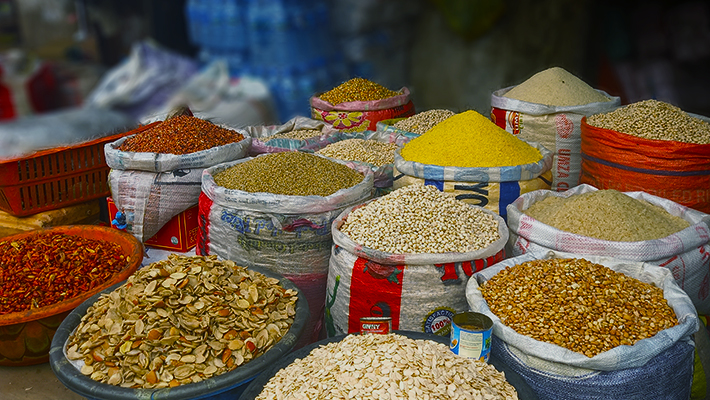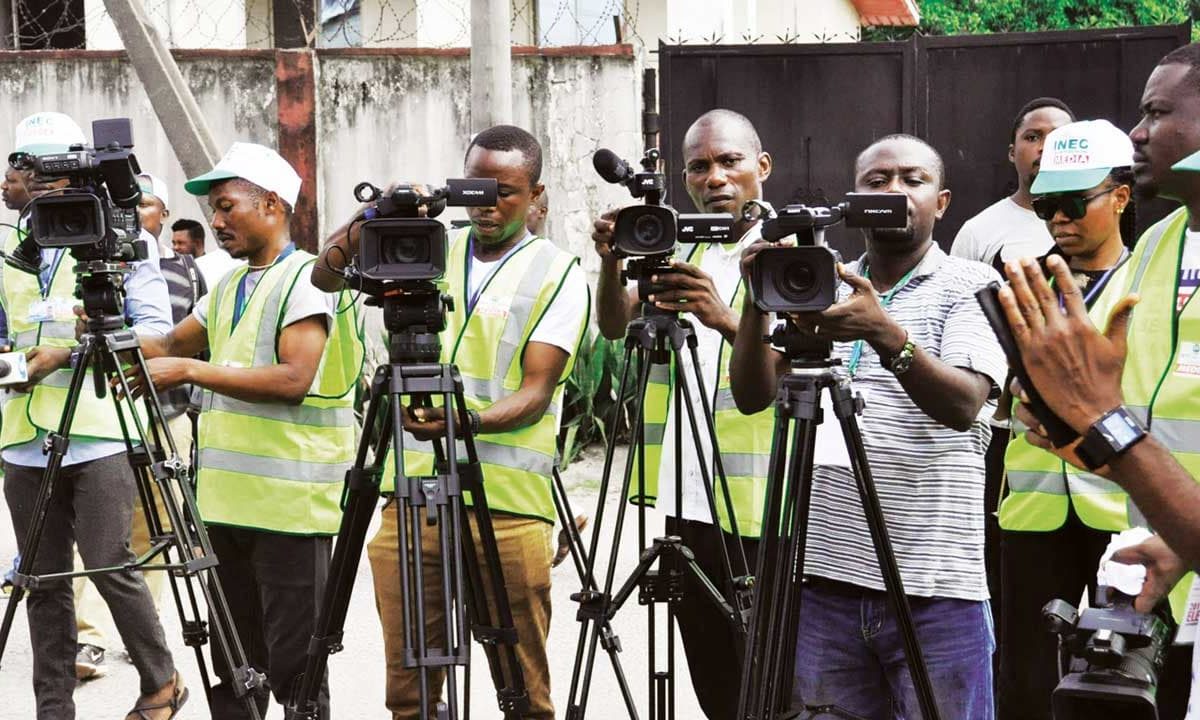Rising inflation rates may disproportionately affect the poor due to their limited access to financial services resulting in lower income and higher relative prices of essential goods, thereby increasing poverty overall.

It is the dream of every country, developed or underdeveloped, to see equitable advancement in the living standards of its people. This advancement encompasses every element of human pursuits and is the centre of development in the economic sector.
Also, it is impossible to deny that the economy plays a major role in the survival of the health, agricultural, technological, educational, and social sectors, among others. In other words, all other sectors collapse in tandem with the economic sector.
Misconceptions of Inflation
One of the most commonly used phrases in economic discourse is inflation, although there are several misconceptions about the idea. There are several schools of thought on inflation as economists generally agree that it is an ongoing increase in prices. Inflation simply, is the term used to describe an ongoing general increase in the cost of goods and services. It means that the money you have at the beginning of the year will get you fewer goods and services at the end of the year.
One of the main reasons for price increases in various industries is inflation, which can affect almost every good or service, including food items, housing, electricity, and medical care amongst others. Even if you continue living your regular life, travelling to the same destinations, eating the same foods, etc, the costs of even basic necessities will rise over time, especially during periods of high inflation.
Types of Inflation
Inflation can be grouped into four types according to its magnitude.
- Creeping inflation: This happens when price growth is extremely gradual. A consistent yearly price increase of less than 3 per cent annually fits into this category; such an increase in prices is thought to be safe and necessary for economic growth.
- Walking inflation: This happens when annual inflation is in the single digits and prices are rising slowly. This occurs when the pace of price increase falls between 3 and less than 10 per cent. This rate of inflation is a warning indicator that the government needs to take action to stop it before it becomes persistent inflation.
- Running inflation: This refers to a sharp increase in costs, typically ranging from 10 to 20 per cent annually, as running inflation. The poor and middle class suffer greatly from this kind of inflation.
- Hyperinflation: This kind of inflation happens when prices increase by double or triple digits very quickly. This could lead to a situation in which prices rise many times a day, completely uncontrollably, and the inflation rate becomes unmeasurable.
With the above breakdown, there is absolutely no doubt that Nigeria is currently already in the Hyperinflation stage given the continuous increase of prices of goods and services on a daily basis.
According to the revelation of the Nigerian Bureau of Statistics (NBS) in its ‘Consumer Price Index published on Thursday 15 February, 2024, Nigeria’s inflation rate has climbed to 29.90 per cent in January 2024 from 28.92 per cent recorded in the previous month which shows an increased of 0.98 per cent.
The report read, “In January 2024, the headline inflation rate increased to 29.90 per cent relative to the December 2023 headline inflation rate which was 28.92 per cent.
“Looking at the movement, the January 2024 headline inflation rate showed an increase of 0.98 per cent points when compared to the December 2023 headline inflation rate. Similarly, on a year-on-year basis, the headline inflation rate was 8.08 per cent points higher compared to the rate recorded in January 2023, which was 21.82 per cent.”
“This shows that the headline inflation rate (year-on-year basis) increased in January 2024 when compared to the same month in the preceding year (i.e., January 2023).”
Consequently, during this period of economic compression, both institutions and employees suffer from high rates of inflation brought on by the devaluation of the country’s currency, job losses, excessive taxes, and the government’s neglect of education. In most cases, only a small portion of annual budgets is appropriated for education and these changes made to the system will undoubtedly have an impact on schools because the education system is a component of the larger macroeconomy.
READ ALSO: Senate grills CBN Governor over inflation in the Country
One of the most frequent questions asked is “How does inflation affect education?” Even though it is widely believed that children have a right to education, not everyone can afford it. A typical father can gradually lose the ability to pay for his child’s education due to the rising costs of school shoes, uniforms, textbooks, tuition, transportation, etc.
In the area of health, prices of medication have also increased greatly, sometimes rising by hundreds or thousands of percentage points all at once. Some people may die as a result of unforeseen price hikes as they struggle to pay for the medications thereby increasing the mortality rate.
Also, the effects from the fluctuation in food prices on household welfare is a topical issue among many as inflation has sent prices sky high for just about everything including groceries, gas and rent, among other essentials. Some certain items are more negatively impacted by price rises than others, and certain demographic groups are more negatively impacted than others and anyone who has recently gone grocery shopping is aware of the recent price increases for all goods, particularly on food items.
Due to rising production costs, producers are also suffering from high prices and find it difficult to make a significant contribution to the country’s output.
Many farmers have also not returned to farming due to the fear of being killed or sexually assaulted by bandits and have resolved to practise small-scale farming.
To avoid falling into a long-lasting cycle of food insecurity and poverty, vulnerable households might be obliged to sell off their productive assets or forgo other necessities.
Some essential items have seen a drastic price increase, namely; rice which is now at N75,000 to N90,000; a carton of noodles at N11,000; a kilogram of chicken at N5,000; a crate of egg at N3,500; a bag of pure water at N3oo; a bag of garri at 45,000; a hike in transportation cost as fuel hits N1,000 per litre; a bag of cement at N8,000 and an endless list of others.
Disparity between the rich and the poor
Rising inflation rates may disproportionately affect the poor due to their limited access to financial services resulting in lower income and higher relative prices of essential goods, thereby increasing poverty overall. Another sign that the cost of living crisis is most severe for those least able to cope.
In fact, because high inflation disproportionately affects lower and middle-class households’ earnings and savings, it is likely to exacerbate economic inequality and poverty.
On Monday, 19 February, 2024, some youths and traders due to the hardship in the country, took to major streets in Ibadan, the Oyo State capital to protest against the high cost of living.
They were displaying various placards, chanting solidarity songs to denounce what they termed growing inflation and the dwindling purchasing power of Nigerians and underscoring the need for the President Bola Tinubu-led Federal Government to do the needful to mitigate the suffering of the masses.
The protesters, describing the hardship as unbearable, also accused Tinubu’s administration of allegedly inflicting pain and hardship on the citizenry.
A protester, who identified himself as a driver, expressing his grievances, lamented the high cost of living, saying he could no longer afford to feed his family.
“They said ‘it is our turn,’ should we not be able to eat? Is it till hunger kills us? We want to pay school fees, we can’t; we want to eat, we can’t eat. How many people were drinking garri before? Even that garri is now very expensive.
“We want the government to have mercy on us. This suffering is too much. How did everything get to this level? If they can’t do it, let them leave the seat for those who are capable,” he said.
People say that in Nigeria, once the price of a commodity goes up, it never comes down. Is inflation on the way out or here to stay?



